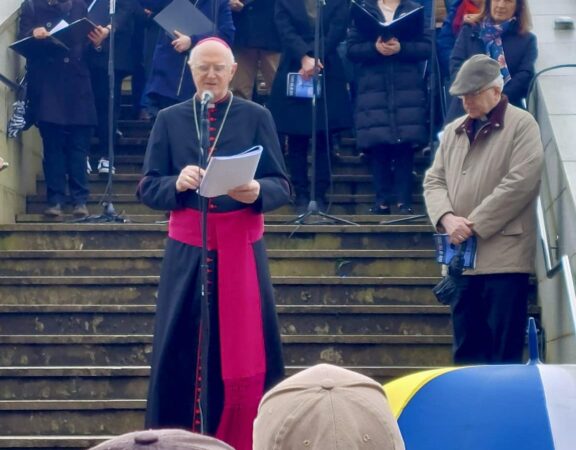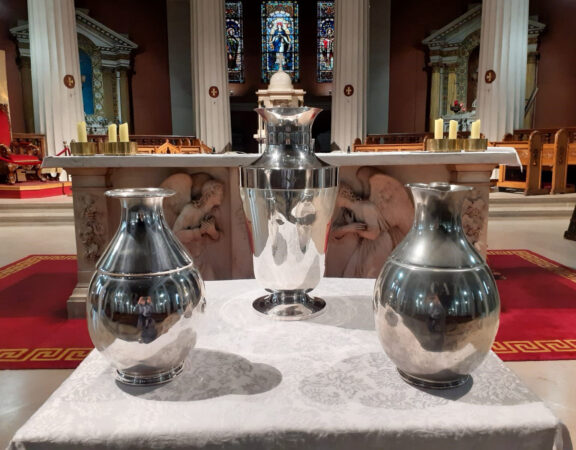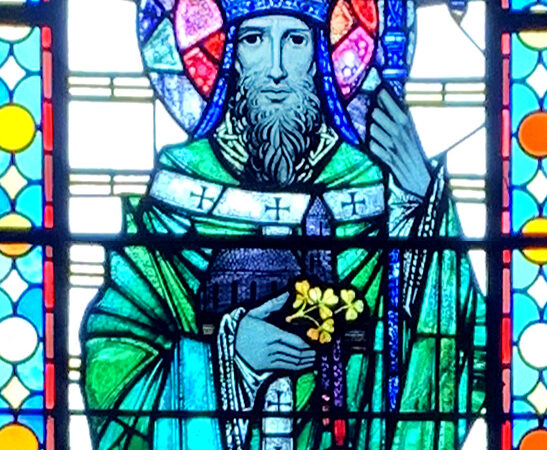CATHOLIC SCHOOLS WEEK 2014
Archbishop Diarmuid Martin
Catholic Schools Week is an important initiative and indeed one of the most successful initiatives of the Catholic Church in Ireland over recent years. It is an initiative which came at the right time.
This is a great moment for education in Ireland. It is a moment of ferment. It is one of those rare moments in which Irish society is taking a deeper look at the future of education. It is a moment in which people are thinking of what education is really about.
Ferment is good; but ferment challenges. It challenges people’s fixed ideas. It challenges accepted wisdom. It challenges ideologies. It challenges the way we invest resources in education. Ferment is good, but ferment can leave people insecure.
Catholic Schools Week is an initiative which aims to restore confidence in Catholic education but also to clarify vision. It is an occasion to recall to all the contribution of Catholic Schools to education in Ireland. I am not just talking about a contribution in the past. I am talking about today and about tomorrow.
I have left no doubt regarding my opinion that a changing Ireland needs a changing framework for patronage in education. Ireland needs diversity and plurality in patronage and I am happy to see a consistent move – if at times a painfully slow one – towards recognising and establishing such a pluralist system. There are difficulties and indeed there are pitfalls. It is important that the rootedness of our school system in local communities is not weakened. It is important to avoid elitism and ways in which, under the call for pluralism, some people subtly opt out of pluralism by avoiding schools with substantial numbers of children who suffer educational disadvantage.
Plurality of patronage, however, does not mean that there is no longer room for the Catholic School. If anything, the success of a pluralist system of patronage in Ireland requires a strong and robust Catholic schools system as part of its DNA. A very substantial number of parents – including parents of immigrant communities – clearly want to send their children to Catholic Schools. It is in the public interest that the Catholic school system be the best possible system, one marked by real educational excellence. This requires that the Catholic school system receive appropriate public support in policy, in finance, in public discourse, in preparing and training teachers specifically for Catholic education.
It also means that the Catholic schools system will have to relearn the manner in which it brings its contribution to and within a pluralist society. Such rethinking does not mean abandoning or weakening Catholic identity, anything but! It does mean however that they re-focus on what their Catholic identity means.
Catholic education is called to provide a unique framework within which parents and teachers and Church community together, work to integrate the values of each child, the ideals of living a good life, the hope of rising above the contingent to aspire to the generosity and self-giving which is the mark of the God revealed in Jesus Christ. Through the years that Catholic ethos of truth, goodness and love has become embedded in the very bricks and mortar of our school system and my prayer is that the same ethos will find its place, if in a different manner, in the educational culture of twenty-first century Ireland and will find that contribution recognised in the politics of education of the Ireland of the future.
Pluralism in patronage does not mean antagonism. The different models of patronage must also be alert to finding ways of working together, of coming together in a constructive way and to contribute together to building communities where the fundamental values of pluralism are reflected. Rivalry can be left to the healthy rivalry of the sports field. Constructive engagement between schools of different ethos should focus on understanding and respect for difference and for the other, as well as ensuring equity and efficiency especially at a time of economic crisis.
The Catholic school has to be clear that the term ethos cannot be reduced to vague generalities or undefined “Gospel values”. Pope Benedict in the first words of his first Encyclical Deus Caritas Est, stressed that “being Christian is not the result of an ethical choice or a lofty idea, but the encounter with an event, a person, which gives life a new horizon and a decisive direction”. That event is Jesus Christ and how he revealed God’s love. Saint John offers a kind of summary of the Christian life: “We have come to know and to believe in the love God has for us”.
Certainly a Catholic ethos can never be exclusivist. But it must always be clearly Catholic and thus focussed on leading the student to a personal knowledge and love of Jesus Christ. Catholic education is not indoctrination, but neither can it be milky and watery about who Jesus is and what belief in Jesus involves.
There is no Catholic ethos where there is no prayer and worship. There is no Catholic ethos which does not speak about allowing Jesus to be a focal point of direction in life. Catholicism is not a religion of individualism: the Christian belongs by definition to a faith community, in the first place the local parish community. Religious education in the Catholic school cannot be reduced just to a few periods of reflection on the history and the sociology of religion. It must evangelize; it must lead the young person to know Jesus in the faith community which is the Church. School and parish must work together. That collaboration is essential.
Can a State funded pluralist system accept such a specifically religious ethos? Pluralism does not mean that those with religious values must set aside those values in their search for meaning and purpose in life. Catholic schools must however also prove themselves and witness to the Gospel of Jesus in a way which attracts and fosters dialogue with others. They must show how the transformative love of Jesus Christ is a vital force driving believers to be concerned about the world around them and to become good and active citizens. Catholic Schools Week is a moment in which Catholic Schools can focus on their mission and witness effectively to their public value in today’s pluralist society. ENDS









